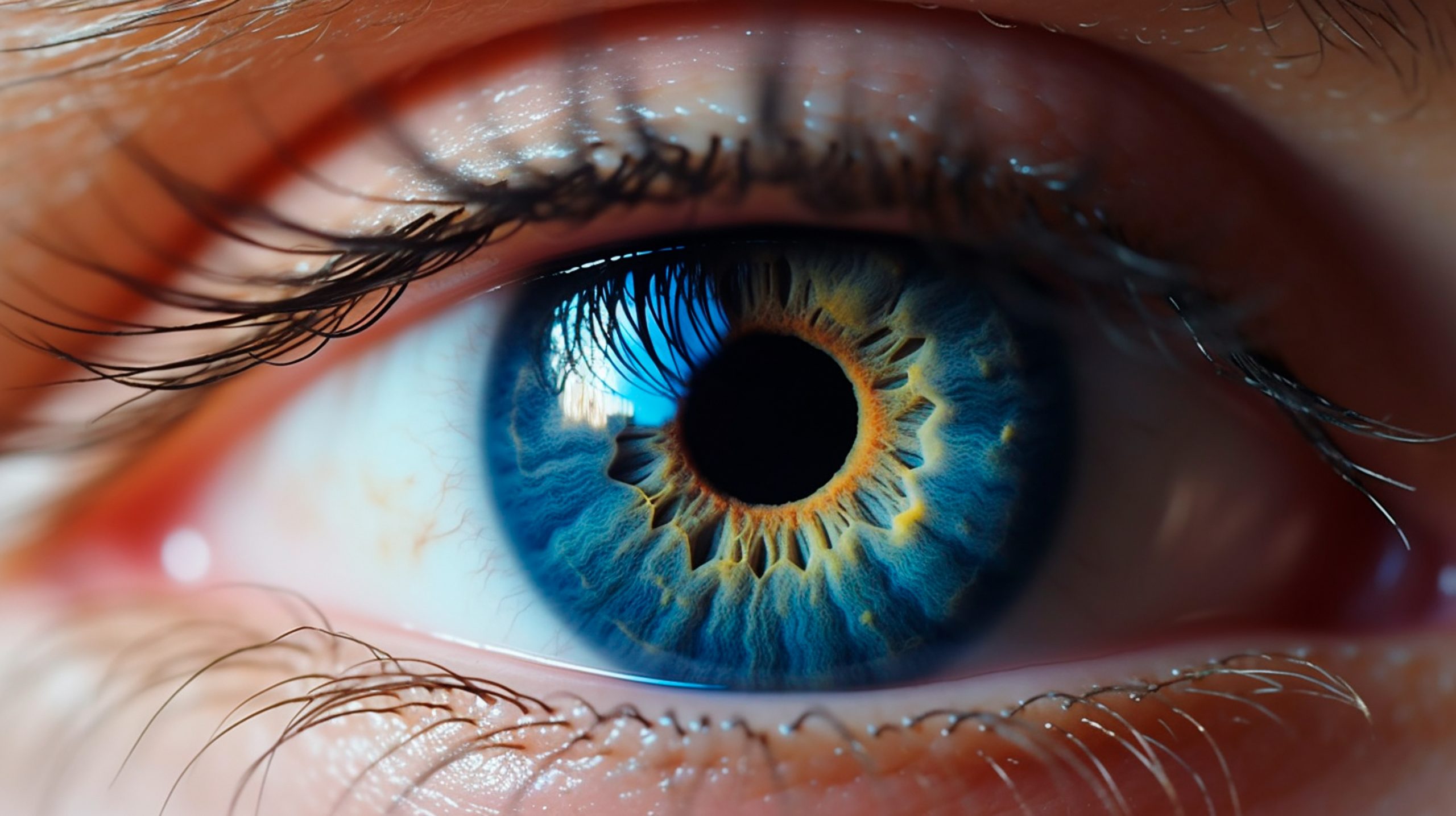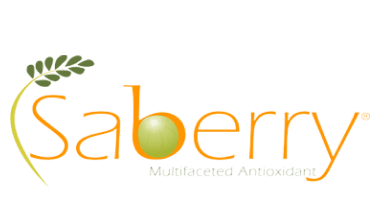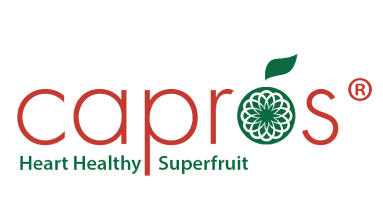Absolutely, Magtein® certainly deserves to be in the conversation alongside renowned supplements like Sensoril® and KSM-66®. However, it's important to recognize the...

EYE HEALTH
EYE HEALTH
Eye health is the ability of your eyes to see clearly and comfortably to keep you safe, productive, and engaged.
Ingredients
Specialty
Ingredients
Specialty Ingredients
Goal OVERVIEW
Preserving excellent eye health and performance should be a shared objective. Much like other bodily functions, our eyes wear and tear over time due to usage and aging. The visual decline might affect some earlier or more intensely than others. However, comprehending the essence of eye health, its upkeep, and methods to mitigate issues – even potentially reversing certain conditions – is crucial knowledge for all. Discovering daily care methods to protect eye health and supplements that optimize visual performance is important.
What You Should Know
You can do many things to improve your eye health, and most are common sense: Get regular eye exams. This is the best way to detect eye problems early on and address them. Wear sunglasses that protect your eyes from the sun’s harmful rays. Eat a healthy diet. Eating plenty of fruits and vegetables can help to protect your eyes from damage. Yep! Quit smoking. Smoking can and does damage your eyes. Manage your diabetes. If you have or are predisposed to diabetes, you should know it can damage your eyes.
FOOD FOR THOUGHT
Good eye health is essential for maintaining your independence and quality of life. You can do many things to improve your eye health, even if you have a family history of eye problems. By taking care of your eyes now, you can help to ensure that you stay visually comfortable and independent throughout your life. GenMag.com will provide numerous specialty ingredients for you to consider. Nearly all of them are validated with evidence-based research.

SHAGANDHA® BY SABINSA
Shagandha® is a standardized powdered extract from the roots of Withania somnifera, commonly known as ashwagandha. Shagandha® offers various health benefits, including reducing stress, anxiety, and insomnia while improving cognitive function, reducing inflammation, and boosting the immune system. It is available in capsules, powders, and teas and is often used in herbal mixtures. Considered to be a breakthrough Adaptogenic.
Sponsored Content
FAQ
Eye problems can manifest in various ways, from mild discomfort to severe vision impairment. Detecting early signs and symptoms of eye issues is crucial for timely intervention and preserving your vision.
Here are some common signs and symptoms of eye problems:
1. Blurry or Cloudy Vision:
- Blurriness or cloudiness in your vision can indicate refractive errors like nearsightedness, farsightedness, or astigmatism. It can also be a symptom of more serious conditions like cataracts or macular degeneration.
2. Difficulty Focusing:
- Struggling to focus on objects at different distances might indicate presbyopia (age-related near vision loss) or other refractive errors.
3. Eye Pain or Discomfort:
- Eye pain, discomfort, or a sensation of pressure could be due to various causes, including dry eye, eye strain, allergies, or more severe conditions like glaucoma or infections.
4. Redness and Irritation:
- Redness and irritation might result from allergies, dry eye, conjunctivitis (pink eye), or other underlying issues.
5. Sensitivity to Light:
- Light sensitivity (photophobia) can be a symptom of corneal abrasions, uveitis, or migraines.
6. Floaters and Flashes:
- Seeing spots, specks, or flashes of light in your vision might be due to changes in the vitreous gel in the eye. A sudden floater increase could also indicate retinal detachment, which requires immediate medical attention.
7. Double Vision:
- Issues with eye alignment, neurological problems, or other underlying conditions can cause double vision (diplopia).
8. Changes in Color Vision:
- Difficulty distinguishing specific colors or experiencing a change in color perception can be related to various eye conditions.
9. Loss of Peripheral Vision:
- Gradual peripheral (side) vision loss could indicate conditions like glaucoma or retinal detachment.
10. Decreased Night Vision:
- Struggling to see in low-light conditions might be related to cataracts or other retinal problems.
11. Watery or Discharge:
- Excessive tearing or unusual eye discharge can be a symptom of eye infections or other issues.
12. Eye Fatigue and Strain:
- Feeling tired, strained, or uncomfortable after prolonged reading, computer use, or other visual tasks could be due to digital eye strain or underlying vision problems.
13. Gradual Vision Changes:
- Changes in your vision that occur gradually over time, such as difficulty reading small print, might indicate the need for corrective lenses.
If you experience any of these signs or symptoms, it’s essential to consult an eye care professional, such as an optometrist or ophthalmologist, for a comprehensive eye exam. Early diagnosis and treatment can prevent further complications and preserve your vision. If you have pre-existing eye conditions or risk factors, regular eye check-ups are recommended even if you don’t notice any symptoms.
Protecting your eyes from damage involves a combination of preventive measures, healthy habits, and regular eye care.
Here are some of the best ways to safeguard your eyes and maintain good eye health:
1. Wear Protective Eyewear:
- When engaging in activities that could pose a risk to your eyes, such as sports, DIY projects, or working with hazardous materials, wear appropriate protective eyewear, such as safety glasses or goggles.
2. UV Protection:
- Protect your eyes from the harmful effects of ultraviolet (UV) rays by wearing sunglasses that provide UV protection. Look for sunglasses that block both UVA and UVB rays.
3. Healthy Diet:
- Consume a nutrient-rich diet that includes foods high in antioxidants, vitamins (A, C, E), minerals (zinc), and omega-3 fatty acids. These nutrients support eye health and reduce the risk of age-related eye conditions.
4. Stay Hydrated:
- Proper hydration is essential for maintaining the moisture levels in your eyes. Drink enough water throughout the day to prevent dry eyes.
5. Regular Eye Exams:
- Schedule regular comprehensive eye exams with an optometrist or ophthalmologist, even if you don’t have any apparent vision issues. Regular exams can detect eye problems early when they’re most treatable.
6. Computer and Digital Device Use:
- Follow the 20-20-20 rule: Every 20 minutes, take a 20-second break and focus on something at least 20 feet away. Adjust your screen settings to reduce glare and maintain proper ergonomics.
7. Limit Screen Time:
- Limit prolonged screen time to prevent digital eye strain. Blink frequently and ensure proper lighting to reduce strain on your eyes.
8. Proper Lighting:
- Ensure adequate lighting when reading or engaging in close-up tasks to prevent eye strain.
9. Eye Safety at Home:
- Be cautious when using sharp objects, chemicals, or tools at home. Protect your eyes by wearing appropriate eye protection.
10. Quit Smoking:
- Smoking increases the risk of eye diseases, including macular degeneration and cataracts. Quitting smoking can significantly improve eye health.
11. Manage Chronic Conditions:
- Manage conditions like diabetes, hypertension, and cardiovascular disease, which can impact eye health.
12. Manage Allergies and Eye Conditions:
- If you have allergies, dry eyes, or other eye conditions, follow your doctor’s recommendations for managing symptoms and preventing complications.
13. Stay Active:
- Regular exercise supports overall health, including eye health. Exercise improves blood circulation and helps maintain healthy eyes.
14. Limit Alcohol Intake:
- Excessive alcohol consumption can affect eye health. If you drink, do so in moderation.
15. Wear Makeup Safely:
- Use eye makeup and cosmetics cautiously, and ensure they are of good quality and haven’t expired to prevent eye irritation or infections.
Remember that protecting your eyes is an ongoing effort involving daily habits and regular professional care. Prioritize your eye health to enjoy clear vision and reduce the risk of eye problems as you age.
While a healthy diet is the primary source of nutrients that support eye health, supplements can provide additional support. However, it’s important to approach your supplement selection cautiously, and it’s a good idea to consult a healthcare professional before adding them to your routine.
Here are some supplements that are commonly associated with promoting eye health:
1. Omega-3 Fatty Acids:
- Omega-3 fatty acids, particularly DHA and EPA, are essential for eye health and may help reduce the risk of age-related macular degeneration (AMD) and dry eye syndrome.
- Sources: Fish oil supplements, algae-based supplements.
2. Lutein and Zeaxanthin:
- Lutein and zeaxanthin are antioxidants that help protect the eyes from harmful high-energy light waves like UV rays and blue light.
- They are concentrated in the macula, the central part of the retina responsible for sharp, detailed vision.
- They may help reduce the risk of AMD and cataracts.
- Sources: Supplements, leafy green vegetables like spinach and kale.
3. Vitamin C:
- Vitamin C is an antioxidant that supports the health of blood vessels in the eyes and may help prevent cataracts and AMD.
- Sources: Citrus fruits, berries, bell peppers, broccoli.
4. Vitamin E:
- Vitamin E is another antioxidant that may help protect eye cells from damage caused by free radicals.
- Sources: Nuts, seeds, spinach, fortified cereals.
5. Zinc:
- Zinc is an important mineral for the retina’s health and may help prevent AMD and night blindness.
- Sources: Red meat, poultry, beans, nuts, whole grains.
6. Vitamin A:
- Vitamin A is essential for good vision and maintaining the health of the cornea and other eye tissues.
- Sources: Carrots, sweet potatoes, spinach, eggs.
7. B Vitamins:
- B vitamins, particularly B6, B9 (folate), and B12, are important for reducing homocysteine levels, which can be associated with an increased risk of AMD.
- Sources: Whole grains, leafy greens, meat, fish, dairy products.
8. Astaxanthin:
- Astaxanthin is a potent antioxidant that may support eye health by protecting against oxidative stress and inflammation.
- Sources: Supplements derived from microalgae.
9. Multivitamin Supplements:
- A high-quality multivitamin supplement can provide a range of vitamins and minerals that support overall health, including eye health.
It’s important to remember that supplements are not a substitute for a healthy diet. They should complement a balanced eating pattern rich in nutrient-dense foods. Additionally, individual needs can vary, and certain supplements may be more relevant based on age, existing eye health conditions, and lifestyle factors.
Before adding supplements to your routine, consult a healthcare professional, preferably an eye care specialist or a registered dietitian. They can help determine if supplements are appropriate for your needs and guide you on the proper dosages and formulations. Regular eye exams and a healthy lifestyle remain the foundation for preserving good vision and eye health.
Related Videos
Articles
ProQnol® is a brand of Coenzyme Q10 (CoQ10) supplement. CoQ10 is a naturally occurring compound in the body that plays a...
PeakO2® is a popular ingredient available exclusively through Compound Solutions and is found in numerous pre-workout formulas due to its potential to enhance...

















